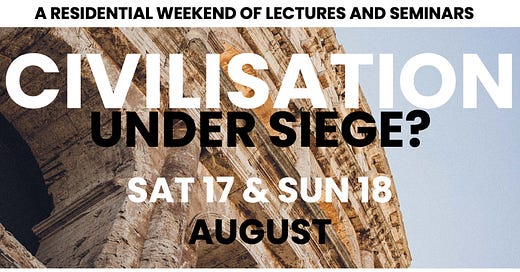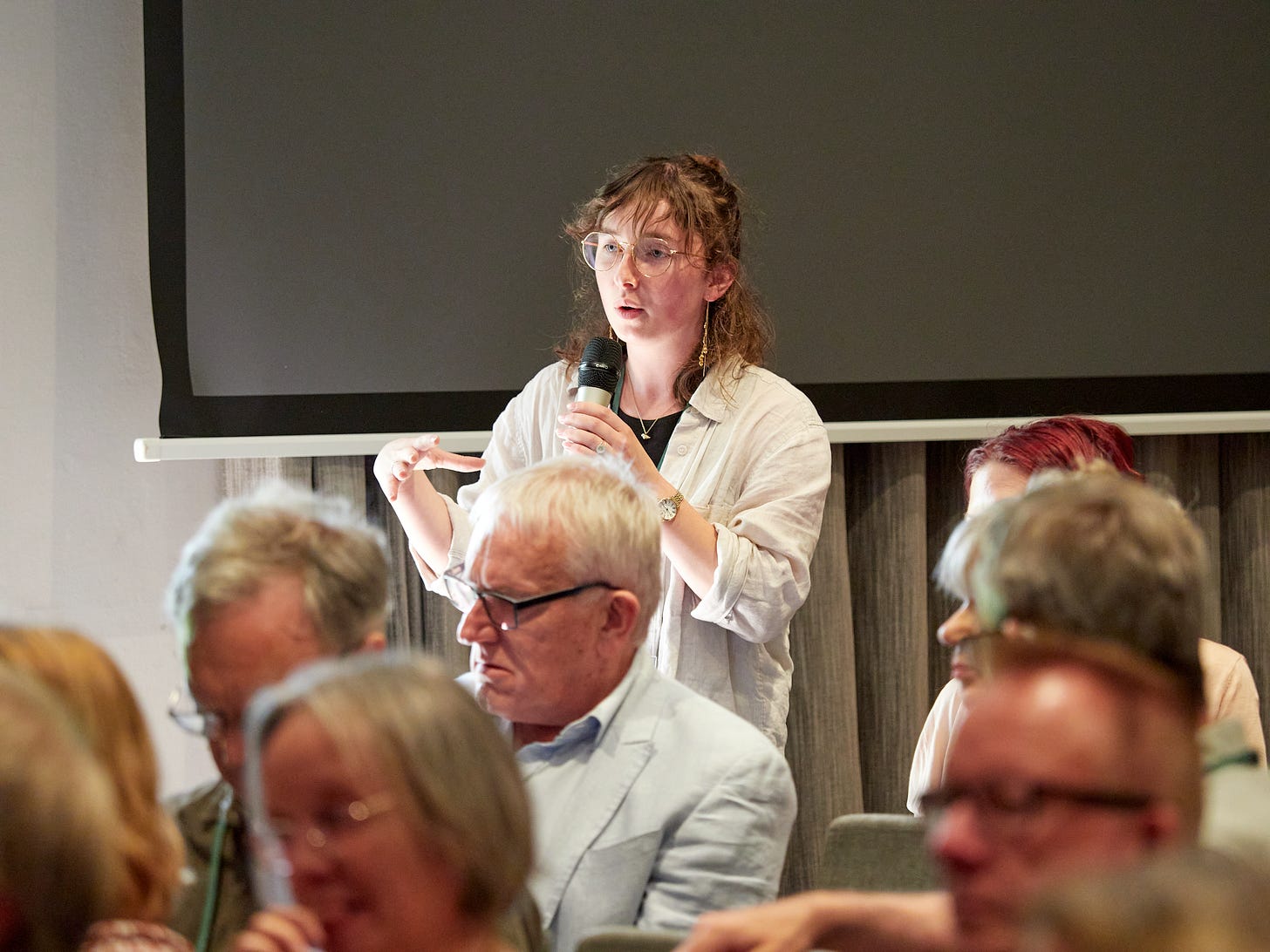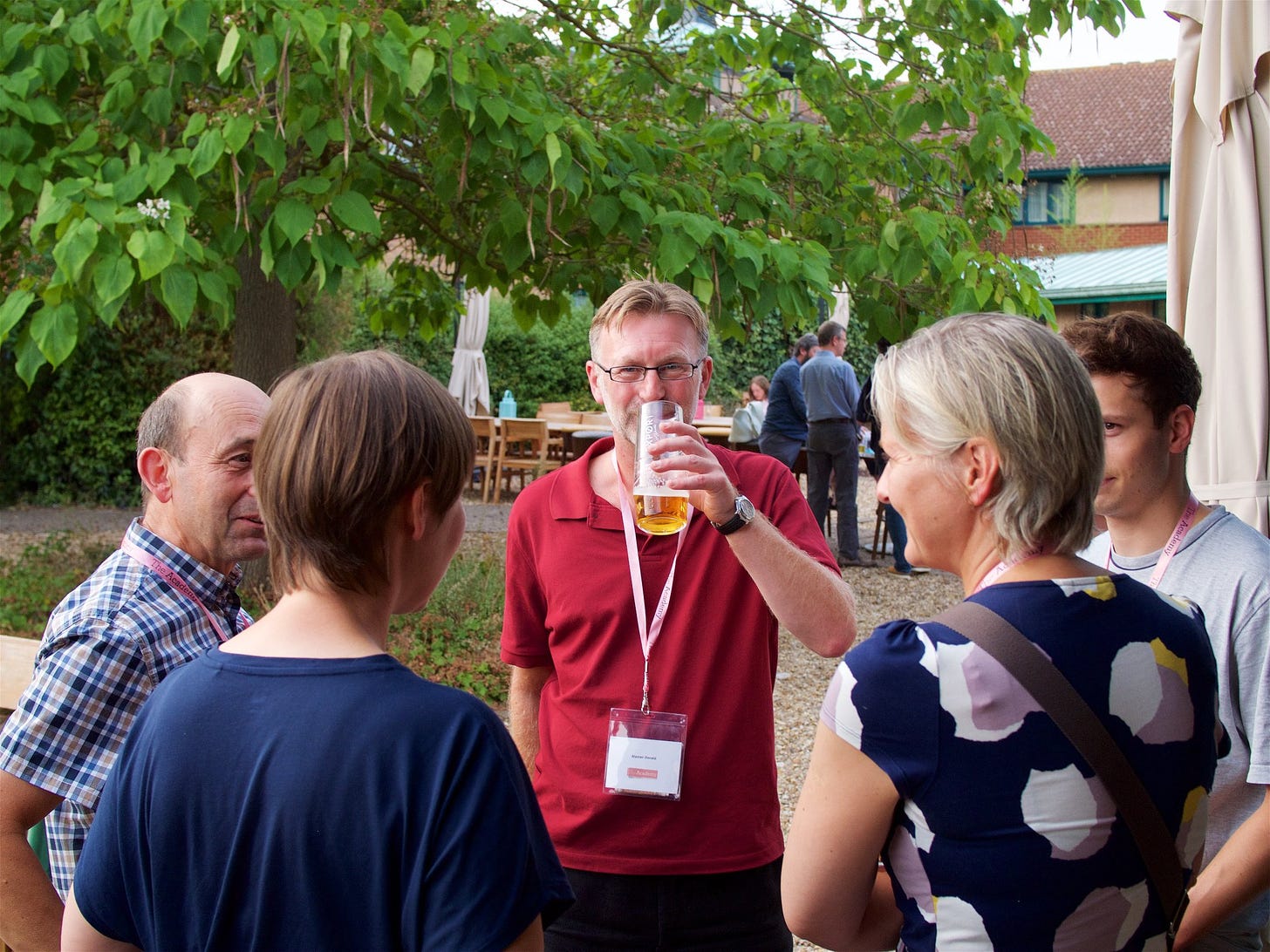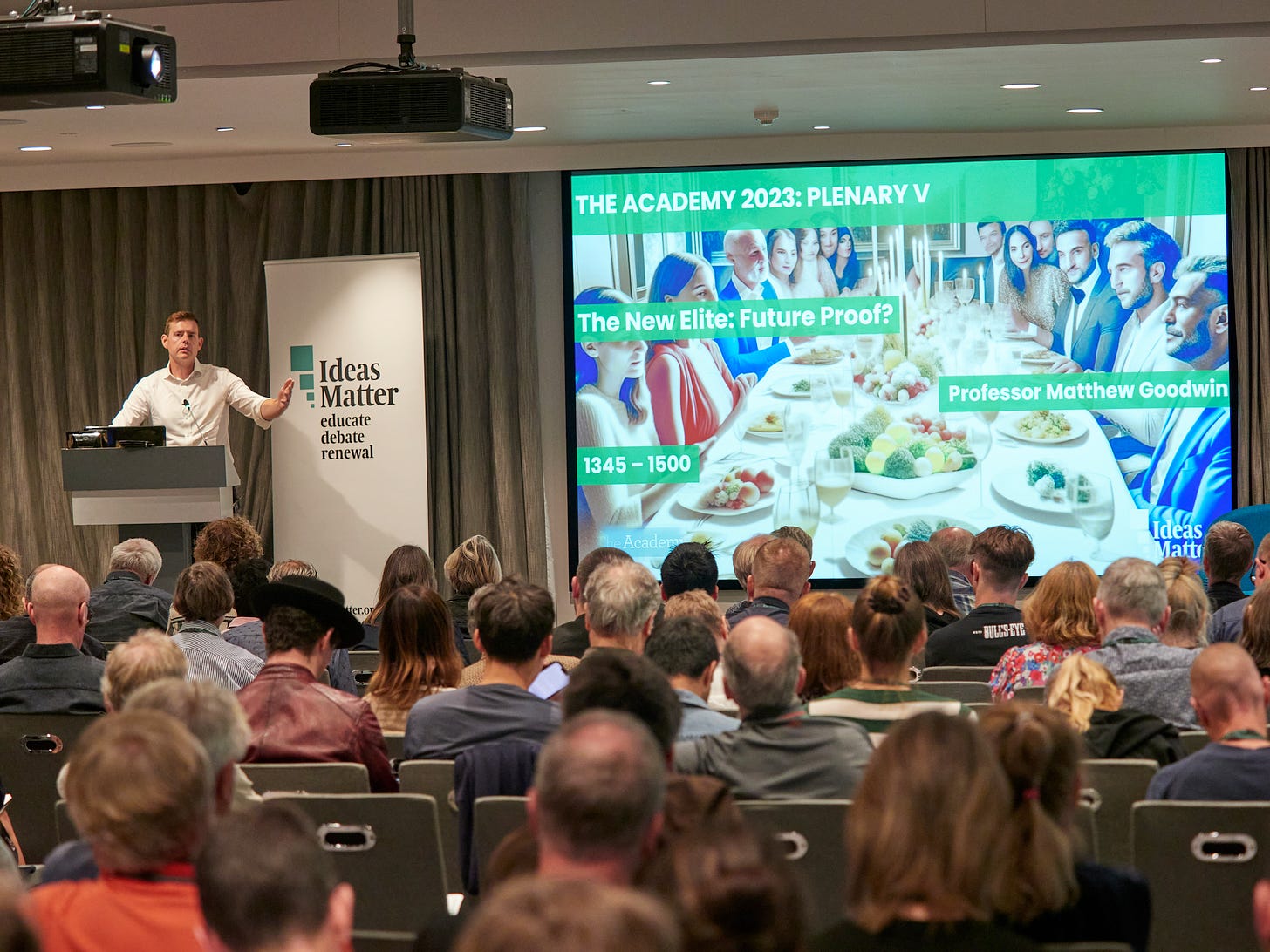Are the threads of civilisation fraying?
Join us to discuss the deeper trends underpinning current events at The Academy next weekend.
Quite rightly, both the barbaric knife attack in Southport and the recent riots in cities across the UK have led to some serious soul searching. Many in power seem to have become anaesthetised to the horror displayed in Southport, the basics of law and order seem beyond the authorities, and, most of all, the UK shows a significant danger of splintering along ethnic lines. With all this in mind, I think it is not hyperbolic to ask whether the social fabric is itself in danger of coming apart.
If the UK is at the forefront of the discussion right now, on display are challenges common to countries across the Western world. In different ways in different countries, Western societies seem more fractious than many of us can remember. What seems so divisive about the current moment is that we are witnessing not just ideological conflict or competition over resources, but disagreements which touch on fundamental and contrasting identities. The difficulties that we seem to have in answering this question of identity - who are we? - suggests that the immediate future is likely to be, to say the least, bumpy.
These internal divisions are mirrored by increasing disorder internationally. In fact, it seems tempting to argue that the domestic culture wars have gone international - that global conflict assumes an increasingly cultural dimension. When Western conservatives lend their sympathies to ‘based’ Putin, or when ivory-tower leftists excuse the rampant anti-Semitism of Islamist Hamas because they stand against ‘Western hegemony’, there is a strong urge to resurrect the language of a clash of civilisations.
What is especially difficult at this moment is that a version of these concerns seem to animate our ruling elites, too. They are busy decrying social division (by which they mean racists vs anti-racists), rallying for a global battle between democracies and autocracies, and pushing the language of a politics based on identity. As we have seen in the UK, behind this stands the threat of state power: for our elites, the solution to social strife is a big crackdown on freedom of speech.
How do we get to grips with the depths of this tear in the social fabric without lending our weight to censorship? How do we deplore the barbarism of foreign powers without resurrecting the Cold War or the War on Terror? Is the promise of Western Civilisation coming apart amid such enormous identity-based tensions?
We have no definite answer to these big questions, but these will be some of the questions asked by Ideas Matter’s event on 17 and 18 August. The Academy 2024: Civilisation Under Siege? is a weekend residential event where, in good company, with good food and a glass of wine or two, we will try and deal with the sense that civilisation itself is unravelling.
The final programme, with some amazing speakers, is below. Tickets and more information are here. We hope to see you there!
Jacob Reynolds will be discussing the issues covered in the event on Andrew Doyle’s Free Speech Nation tonight.
Academy 2024: Civilisation Under Siege?
PROGRAMME
PLENARY DISCUSSIONS
FROM DECOLONISATION TO ISLAMISM: CIVILISATION UNDER SIEGE?
Professor Frank Furedi executive director, MCC Brussels
SHAKESPEARE: CIVILISATION ON STAGE
Andrew Doyle writer, broadcaster, comedian
THE CLASH OF CIVILISATIONS REVISITED
Dr Tim Black books and essays editor, spiked
IS THERE A THREAT TO WESTERN CIVILISATION?
Professor Bill Durodié, chair of Risk and Security in International Relations, University of Bath
David Frost, Lord Frost of Allenton, Conservative member of the House of Lords
RECLAIMING THE INSTITUTIONS: CAN CIVILISATION BE RESCUED?
Professor Simon Haines, founding director, Ramsay Centre for Western Civilisation (Sydney)
Dr. Patrick Nash, expert on the English law of religion; founding director, Pharos Foundation (Oxford)
WHAT IS WESTERN CIVILISATION – AND HOW SHOULD WE DEFEND IT?
Bruno Waterfield Brussels Correspondent, The Times
HISTORY
THE RISE AND FALL OF INDUSTRIAL CIVILISATION
Dr Ashley Frawley columnist, Compact Magazine; sociologist,
University of Kent
Dr Nikos Sotirakopoulos visiting fellow, Ayn Rand Institute
CIVILISING MAN: THE DISTINCTION BETWEEN HUMAN AND ANIMAL
Ann Furedi PhD candidate in Philosophy, VUB; author, The Moral Case for Abortion
ARTS
PRIMO LEVI: CIVILISATION AFTER BARBARISM
Sabine Beppler-Spahl, chair Freiblickinstitut e.V
CULTURE UNDER SIEGE: HIGH ART AND ICONOCLASM
Professor Ian Pace pianist and Professor of Music, Culture and Society, City University London
Vicky Richardson architecture curator; former head of architecture and Drue Heinz Curator, Royal Academy
TICKETS
You can choose to buy day tickets without accommodation, or tickets that include accommodation at Wyboston Lakes Resort. Tickets are subsidised to make the event available to as many people as possible.
Day tickets only include lunch.
Tickets with accommodation include:
• Brilliant food
• Excellent facilities
• Social opportunities
Have a friend who is also interested? You can save up to £50 each by doubling up with a friend. Select ‘double occupancy’ and let us know you’d like a twin room.
How to purchase
All tickets can bought via Eventbrite.
Weekend Tickets with Accommodation
• One night, single occupancy £255
• One night, double occupancy £420
• Two nights, single occupancy £360
• Two nights, double occupancy £570
ABOUT THE EVENT
The problems of the current moment are frequently described as ‘civilisational’ in their importance. Some say the culture wars pose a threat to the building blocks of civilisation: family life, privacy, or civility. Others would argue the real threat to civilisation is from ‘global challenges’ like climate change or AI. In the wars in Gaza or Ukraine, some repose arguments about the ‘clash of civilisations’. But in many quarters, especially in academia, the very idea of civilisation is dismissed or treated as a dirty word. Wherever we look, there is a sense that civilisation itself is under siege from hostile forces.
But what is civilisation? How does it emerge? At the origin of the Western tradition, the distinction between civilised and barbarian formed a crucial part of our self-understanding. For the Greeks or Romans, certain customs and ways of life marked them off from their “barbarian” neighbours. Throughout the West, the idea of civilisation formed a key part of the motor of history, from the Renaissance through to the Enlightenment and beyond. But now such distinctions are viewed with suspicion – just one more piece of baggage associated with colonialism.
As ever, The Academy will bring together people from all walks of life who are committed to rethinking some of the basic building blocks of political life. Join us as we look at what civilisation is, whether it is under threat, why it might be worth defending.







